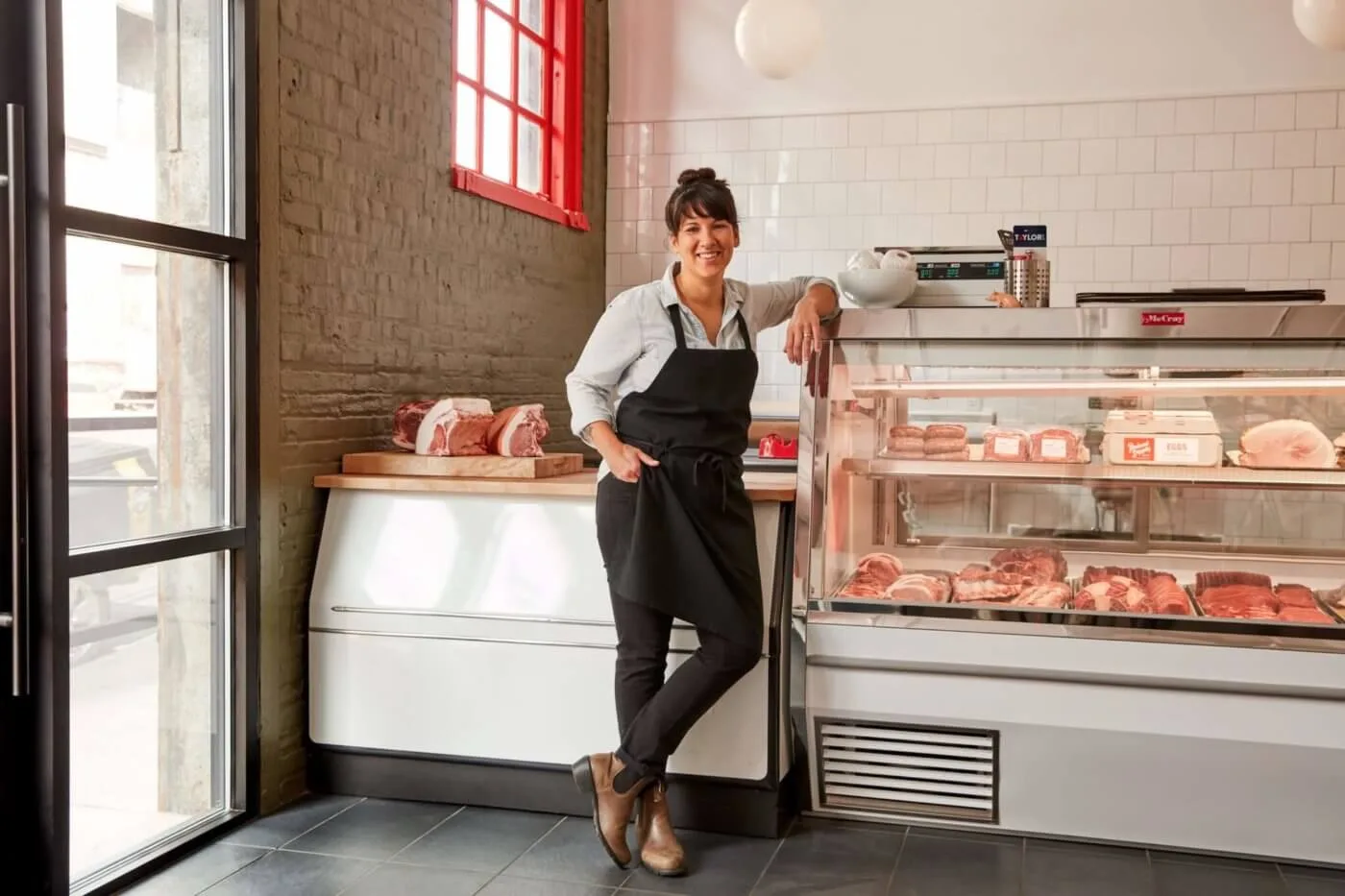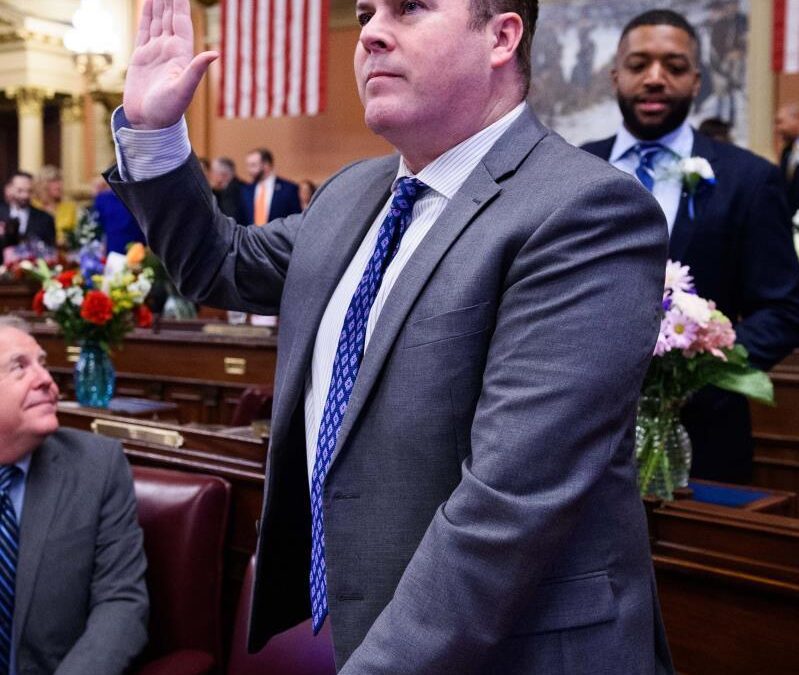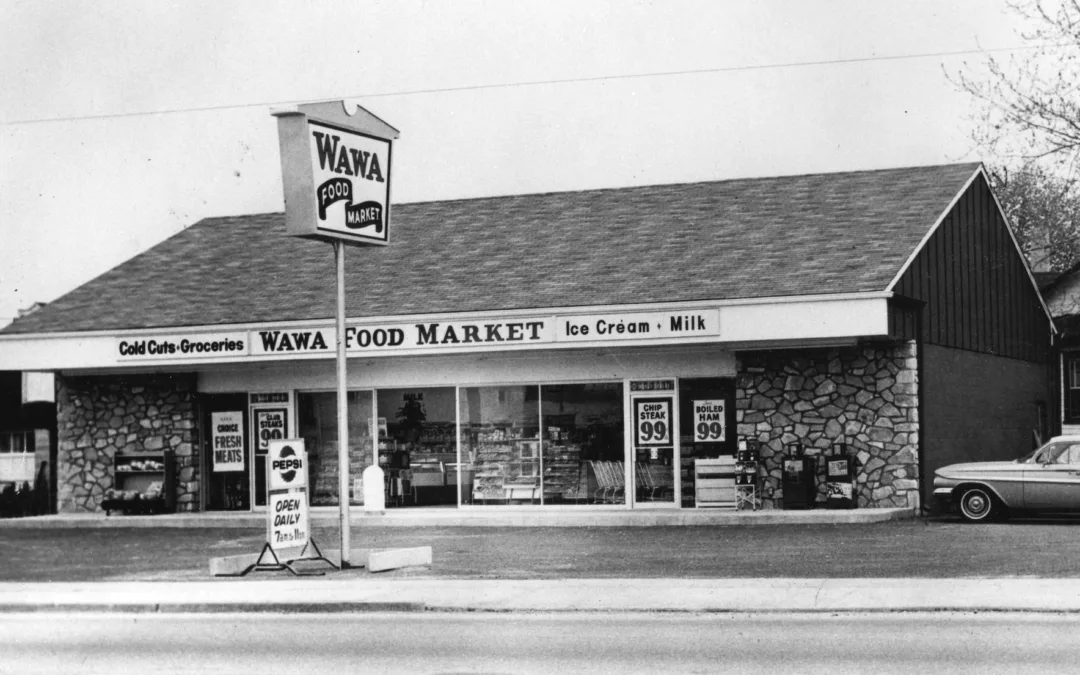
Heather Marold Thomason (Courtesy: Primal Supply Meats)
Heather Marold Thomason’s passion for sustainably-raised, locally-sourced meats inspired her to open the Philadelphia whole animal butchery Primal Supply Meats.
PHILADELPHIA — Career changes can take people to unexpected places. Just ask Heather Marold Thomason, whose transition from graphic design to whole animal butchery — a practice that strives to use every part of the animal in an effort to cut down on waste — involved her working an unpaid apprenticeship at North Mountain Pastures in Newport, Perry County.
Thomason was seeking to learn the craft of whole animal butchery when she discovered North Mountain Pastures in early 2012 through a Kickstarter campaign the farm had to raise money for the construction of a butcher shop and meat processing center. An impassioned email she sent to the farm’s owners led to an invitation to visit the farm. On the three-and-a-half hour ride back from the farm to her home in the Park Slope section of Brooklyn, Thomason decided that she would take the plunge and live in a trailer on the farm from April through Thanksgiving, working six days a week learning to raise pastured animals from birth to slaughter.
Working on the farm was really hard physically and emotionally. “Animals die. That was not something I was expecting. Even without butchery, there’s a lot of mortality on farms,” Thomason said. “I was constantly being tested on how far I could push myself.”
Being responsible for everything from raising poultry, pigs, and sheep, to fixing fencing was quite a departure from Thomason’s life in Brooklyn, where the North Jersey native ran a graphic design company with her husband, Brad.
“It was nuts, but it was the best decision I could have made,” said Thomason, 41, of her decision to trade graphic design for the life of a farmhand. “I was 31, and I was reflecting on our business, thinking what the next phase would look like. Computers, and deadlines, and clients were starting to wear on me. I was questioning the longevity of running a business with my husband. And I had developed such an interest in food. To the point where I knew I wanted to work in food, but not cook for a living. The thing I wanted to learn, sourcing whole animals, you couldn’t learn in any butcher shop or grocery store.”
Thomason’s interest in whole animal butchery began in Park Slope, where she developed a passion for supporting local, sustainable food systems as a member of the Park Slope Food Co-Op and a regular at local farmers markets. Through befriending farmers and other stakeholders in the local food community, she learned about the disconnect between farmers and buyers, which often resulted in pasture-raised animals being sold as poorly butchered frozen meat. Thomason felt whole animal butchery was a way she could help to bring about change.
“There was all this energy put into eating thoughtfully grown, clean, local produce, I felt we should do the same thing with meat,” Thomason said. “It was like an ‘aha’ moment. I felt that if I learned whole animal butchery, I could work directly with small farmers and give them another outlet other than hustling their own frozen meats out of a cooler at a farmers market. I could help fix the local food supply chain, and help them turn a profit.”
Following her stint at North Mountain Pastures, Thomason reached out to whole animal butchery The Local Butcher Shop in Berkeley, California, where she honed her craft further through a second apprenticeship. She then returned east in 2014 to help open Kensington Quarters in Philadelphia, a whole animal butchery and restaurant specializing in sustainably raised, locally sourced meats. Her role at Kensington Quarters involved working with area farmers and slaughterhouses to source the meat, which led to another ‘aha’ moment.

“I was putting in all this work to build up a small local meat supply chain to get meat from the surrounding areas into Philly,” Thomason said. “I started to realize it could serve so much more than just one butcher shop and restaurant. Especially as people came from other neighborhoods and complained how far it was, and chefs would complain that they didn’t have access to anything local that’s not frozen.”
This realization led to Thomason opening Primal Supply Meats in Philadelphia in 2016, a whole animal butchery and local sourcing operation that offers pasture-raised meats through a wholesale program for restaurants (wholesale customers include acclaimed restaurants Vetri Cucina and Her Place in Philadelphia, and Anadario in West Chester) and a weekly subscription service for retail customers.
As a whole animal butcher, Thomason’s goal is to make the most out of her meat with a variety of cuts that go beyond the traditional. A side of beef, for example, will be portioned into everything from quick cooking shoulder cuts called ranch steaks; baseball steaks, which are cut from a muscle in the leg; along with being portioned into chunks for stir fry, roasts, and ground beef. Parts of the animal considered unusable and inedible for humans are rendered for everything from pet food and products such as make-up and explosives.
“Initially it was, ‘Let’s forget about the retail counter,’” Thomason said. “I just focused on restaurants and retail customers in a CSA (community supported agriculture) model. I could source animals and know where they’re going. And then we did some farmers markets with the extra meat.”
Primal currently has a staff of 15 and now includes a retail shop in South Philadelphia, and a larger retail location in the Brewerytown section of the city that serves as the company’s headquarters. As the business has grown, Thomason’s relationships with area farmers remains a core component. Currently, the company sources its meat from farms in Juniata and Lancaster counties, who harvest animals exclusively for Primal.
“Working with farmers is what helped Primal grow into what it is today,” Thomason said. “My pitch was ‘How about you just focus on raising the best animals possible, sell them to me as whole carcasses, and I will worry about the marketing and sales and distribution of them. I’ve always strived to be a good partner to farmers.”
As for working in a field traditionally associated with men, Thomason said for the most part she’s been treated as an equal.
“As a butcher, occasionally a customer would look past me and talk to the guy standing behind me,” Thomason said. “But I’ve had pretty great colleagues. The chefs I work with are very respectful and collaborative. Being in male-dominated industries, working in hospitality and as a butcher, I feel like I’ve had a pretty good run of it.”
Politics

Malcolm Kenyatta makes history after winning primary for Pa. Auditor General
State Rep. Malcolm Kenyatta, who was first elected to the state House in 2018, won the Democratic nomination for Pa. Auditor General and will...

Biden administration bans noncompete clauses for workers
The Federal Trade Commission (FTC) voted on Tuesday to ban noncompete agreements—those pesky clauses that employers often force their workers to...

Philadelphia DA cancels arrest warrant for state Rep. Kevin Boyle on eve of Pa. primary
Philadelphia District Attorney Larry Krasner said a detective had sought the warrant against Boyle, a Democrat whose district includes a section of...
Local News

What do you know about Wawa? 7 fun facts about Pennsylvania’s beloved convenience store
Wawa has 60 years of Pennsylvania roots, and today the commonwealth’s largest private company has more than 1,000 locations along the east coast....

Conjoined twins from Berks County die at age 62
Conjoined twins Lori and George Schappell, who pursued separate careers, interests and relationships during lives that defied medical expectations,...






